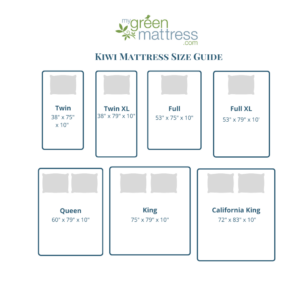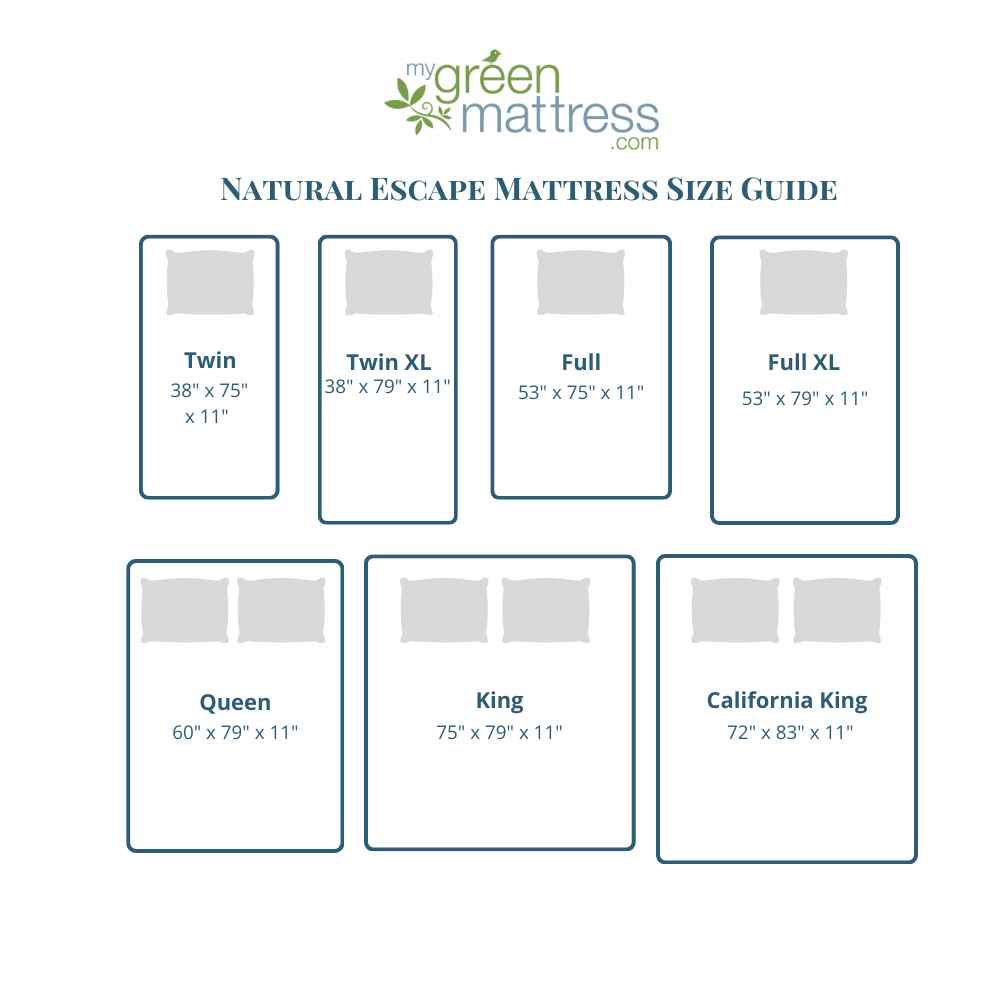Because we’re in the mattress business, we really want all of our customers to have a great night’s sleep. We’ve seen what can happen when folks who have trouble sleeping start to get long, restful nights of sleep: their moods get sunnier, their thinking gets clearer, their health gets better, etc. It’s happened to us! While a lot of this can be dependent on a great new organic mattress (like this one from My Green Mattress), some sleep quality issues have to do with other factors, like sleep hygiene and circadian rhythms.We covered sleep hygiene in a previous article, and in this one we’ll discuss circadian rhythms, with the aim of helping you harness your natural sleep cycle to get a better night’s sleep.
What to Know About Circadian Rhythms
Have you ever wondered why you feel more energized and alert during certain parts of the day while feeling sluggish and tired during others? The answer lies in your circadian rhythms, the internal biological clock that governs various physiological processes in your body, including sleep-wake cycles. Understanding your circadian rhythms and determining the best time to sleep can significantly impact your overall well-being and productivity. So, let’s dive deeper into the fascinating world of circadian rhythms and explore how to determine the best time to sleep for you!
What Are Circadian Rhythms?
Circadian rhythms are the 24-hour internal cycles that regulate numerous biological processes in living organisms, including humans. These rhythms are primarily influenced by external cues, such as light and darkness, and are orchestrated by a master clock located in the brain’s hypothalamus called the suprachiasmatic nucleus (SCN). The SCN receives signals from specialized light-sensitive cells in the eyes, allowing it to synchronize with the natural light-dark cycle.
The Sleep-Wake Cycle
One of the most crucial circadian rhythms is the sleep-wake cycle, also known as the “body clock.” This cycle regulates the timing and duration of our sleep. When our internal clock is aligned with our natural sleep-wake cycle, we experience better sleep quality and feel more alert and refreshed during the day.
Determining the Best Time to Sleep
While the general recommendation is to maintain a consistent sleep schedule, there are individual variations in the optimal time to sleep due to differences in chronotypes. Chronotypes categorize individuals into three main groups: morning larks, night owls, and intermediates.
- Morning Larks
Morning larks are individuals who naturally wake up early in the morning and feel most alert during the early part of the day. Their circadian rhythms align with the rising of the sun, and they tend to feel sleepy earlier in the evening. For morning larks, an ideal sleep schedule would involve going to bed early, around 9 p.m. to 10 p.m., and waking up early in the morning with the sun. - Night Owls
Night owls, on the other hand, have a delayed sleep-wake phase. They typically struggle with waking up early in the morning and tend to feel most alert and productive during the evening and night. Night owls have a tendency to stay awake until late at night and may have trouble falling asleep at an earlier hour. For night owls, an ideal sleep schedule would involve going to bed later, around midnight to 1 a.m., and waking up later in the morning. - Intermediates
Intermediate chronotypes fall somewhere in between morning larks and night owls. They have a more balanced sleep-wake cycle and can adapt to various schedules more easily. Intermediates can find a sleep schedule that aligns with their preferences and lifestyle, such as going to bed around 11 p.m. and waking up around 7 a.m.
Factors to Consider
When determining the best time to sleep, it’s important to consider various factors that can influence your circadian rhythms and sleep quality. Here are a few key considerations:
- Work and Social Commitments: Your work schedule and social commitments should be taken into account. If your job requires you to wake up early, it might be challenging to align your sleep schedule with your preferred chronotype. However, you can make adjustments to your routine to optimize sleep quality.
- Light Exposure: Exposure to natural light during the day and minimizing exposure to artificial light, particularly blue light emitted by electronic devices, in the evening can help regulate your circadian rhythms. Bright light exposure in the morning can help shift your body clock earlier, while dimming lights in the evening can signal the body to prepare for sleep.
- Consistency: Maintaining a consistent sleep schedule, even on weekends, can help regulate your circadian rhythms and promote better sleep quality. Aim to go to bed and wake up at the same time each day, allowing your body to establish a regular pattern.
- Personal Preferences: While it’s important to consider your chronotype, lifestyle, and commitments, personal preferences also play a role. Experiment with different sleep schedules to find the timing that allows you to feel most refreshed and productive. Get specific about it – keep a logbook of how long you are sleeping and the quality of sleep, or use an app that helps you understand your personal circadian rhythm.
The Best Time To Sleep, For YOU
There is no “best time to sleep” for everyone, as everyone’s circadian rhythms are different. Understanding your own circadian rhythms and determining the best time to sleep for YOU can have a profound impact on your sleep quality, energy levels, and overall well-being. By aligning your sleep schedule with your chronotype and considering various factors that influence your circadian rhythms, you can optimize your sleep-wake cycle and unlock the benefits of a well-rested mind and body. Remember, a good night’s sleep is not just about the duration but also about finding the best time to sleep for you, so that the sleep you get is of the highest quality.









